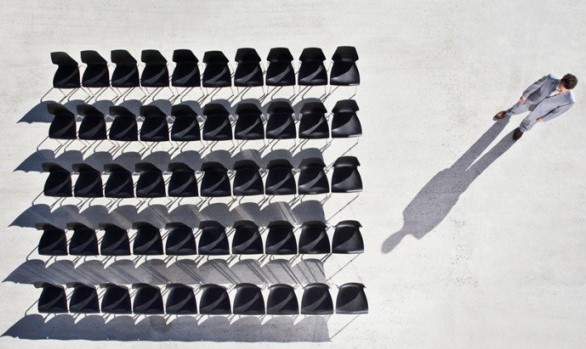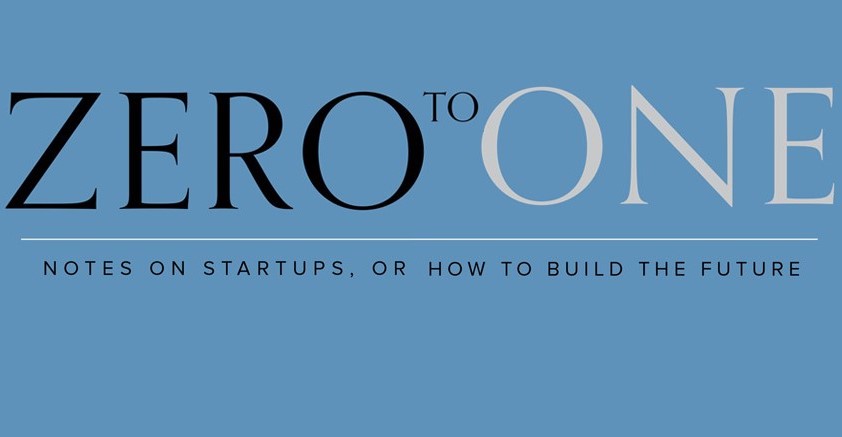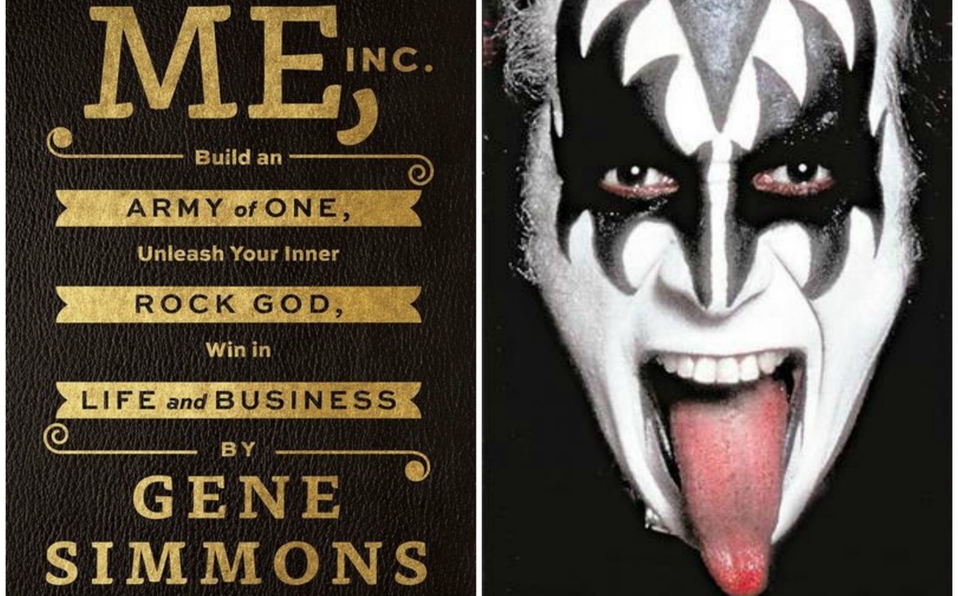One of the passages that raised eyebrows upon the publication of Zero to One by Peter Thiel, a billionaire investor and PayPal founder was on higher education:
For the privilege of being turned into conformists, students (or their families) pay hundreds of thousands of dollars in skyrocketing tuition that continues to outpace inflation. Why are we doing this to ourselves? 1Peter Thiel & Blake Masters, Zero to One: Notes on Startups, or How to Build the Future, (New York: The Crown Publishing Group, 2014), 36.
Most of the debates surrounding the book in the media were around Thiel’s praise for monopoly, but his criticism above of higher education also got noticed. Thiel spoke out several times against higher education:
University administrators are the equivalent of subprime mortgage brokers selling you a story that you should go into debt massively, that it’s not a consumption decision, it’s an investment decision. Actually no, it’s a bad consumption decision. Most colleges are four-year parties.
Over the past decade, there has been a trend of wealthy figures like Peter Thiel on the conservative/right-wing of politics calling higher education a waste of students’ time and money. Business Insider summarized the opinion of Republican Bill Gross, another billionaire and the founder of the investment firm PIMCO, as follows:
College was always a joke, but at least it used to get you a job.
Businessman and TV personality, Kevin O’Leary, who once ran to lead the Canadian Conservative party gave us his two cents:
A college degree isn’t for everyone — ‘be a plumber, they get rich’
Conservative political commentator and radio host, Dennis Prager declared on his personal website: Don’t waste your money on an expensive college. He also discussed it on his YouTube channel (from 17:00):
I’m not sure I know of a more foolish belief…there must be one but I can’t think of it offhand…than everybody should go to college.
Goldman Sachs which is run by conservative investors joined the chorus in 2015: A college degree is getting so expensive that it might not be worth the money anymore. (Source: CNN)
Although right-wing provocateur and conspiracy theorist, Alex Jones, is an odd person to add to this list but it should be noted that he echoes similar views: College is “completely absolutely worthless”
Surely these men are college dropouts, right?
Besides Alex Jones, who’s often in a league of his own, they all have educational backgrounds that don’t reconcile with their “trash talk” about university education. Peter Thiel, a Doctor of Jurisprudence, studied philosophy and law at Stanford University, one of the most prestigious and selective educational institutions in the world. Bill Gross earned a degree in psychology from Duke University, then received an MBA from one of the world’s leading business schools: UCLA Anderson School of Management. Kevin O’Leary received a degree in environmental studies and psychology from the University of Waterloo, then an MBA in entrepreneurship from one of the top business schools in Canada: Ivey Business School. Dennis Prager majored in history at Brooklyn College, a highly-ranked liberal arts college, then he studied at Columbia University, one of the most expensive in the Ivy League. He also studied at one of the highest regarded universities in Europe, the University of Leeds.
Is there truth to their claims?
1. If you have a degree, employers will continue to pay you more, as they should
The Washington Post cited several studies showing the difference in earnings:
[T]he projected median lifetime earnings of those with a bachelor’s degree are 74 percent higher than the earnings of those with just a high-school diploma.
[…]
[Employers] are rewarding traits and skills that are acquired or honed during college, as well as intangibles such as general intelligence and persistence.
2. College gives you skills you keep for life, regardless of your career
Students learn in college basic skills like collaboration, communication and problem solving. Also handling failure, adapting and relearning are some of skills that help you beyond your career.
3. College hones in you great values that benefit you, your family and community
Some of the values you acquire through the four-year challenge is commitment and discipline, ironically such virtues are much esteemed among conservatives, some of whom are unfortunately preaching against the whole university business.
4. Companies established by college dropouts would not hire you without a degree
Bill Gates, Steve Jobs, Mark Zuckerberg and Richard Branson, who are all college dropouts, have established companies where work requires more than a high school diploma. The same is true of Peter Thiel, Bill Gross and Goldman Sachs.
5. Investing in a college degree is expensive but the rate of return is impressive!
Brookings Institution declared in a report several years ago that: College Is Expensive, But Still a Smart Choice
By any financial measure, the investment in a college degree is the winning choice, with a rate of return of a whopping 15.2% a year on the $102,000 investment for those who earn the average salary for college graduates. This is more than double the average rate of return in the stock market during the last 60 years (6.8%), and more than five times the return to investments in corporate bonds (2.9%), gold (2.3%) long-term government bonds (2.2%) or housing (0.4%).
6. Gambling your future on a startup vision is dangerous
Peter Thiel advises young entrepreneurs to ditch college and pursue their startup visions. He goes as far as offering generous grants to a select few to take that route. That approach is very risky and would not work for the vast majority, seeing that 90% of startups fail.
7. Student debt is a problem but don’t fall for the scary stories of $100k loans
It is true that student debt has increased dramatically over the last few decades but not to the extend portrayed by critics of higher education. In an article responding to Peter Thiel, The Washington Post published:
They play on stories of students borrowing more than $100,000 to finance their bachelor’s degree. These are true stories, but the examples are rare. In fact, in 2007–08, the median debt nation wide of graduating seniors at non-profit colleges and universities was roughly $10,000, and 36 percent graduated with no debt at all.
8. This billionaire advice is literally the worst to offer to low-income and minority students
For those who grow up in low-income families or belong to marginalized minorities, better education—university education—is perhaps their only path towards a better future for them and their families. In fact, the aspirations of low-income students who want to pursue college education are sometimes met by resistance from their own families. So that “rich man” advice in the media is akin to throwing at the young yet more obstacles to overcome.
9. Your degree vouches for your knowledge required to join a knowledge-based economy
For most of us, neither we, nor our children, will be working on farms or factories. What we have now is a knowledge-based economy which is one heavily reliant on technology and innovation. In such an economy technical skills are paramount and only the high-skilled, highly-educated could compete.
10. We are all competing on a global scale
Regardless of how we feel about globalization, we can not escape competition on an international scale. It has long been documented that Americans are behind in STEM studies (science, technology, engineering, and mathematics). Currently China is ahead globally:
The leading competitor is China, whose political leadership understands only too well how important STEM leadership is for global leadership. The World Economic Forum calculates that China had at least 4.7 million recent STEM grads as of 2016; India had 2.6 million as of 2017; the U.S. pulls in at third at 568,000. That puts us about equal with India for STEM grads per population (1:516 ratio for Indians and 1:573 for Americans); but well behind China’s 1:293 ratio.
So why the right-leaning/conservatives are turning against higher education?
Obviously advice by some of the above-mentioned figures to consider trade schools (e.g. plumbing) or pursue more affordable education is not unreasonable. However, seeing the overall trend, it’s hard not to wonder whether there is more to it than college expenses. Also, it’s not a coincidence that most of the criticism seems to arise from only one side of the political divide.
Polls as recent as 2017 show that “a majority of Republicans and Republican-leaning independents (58%) now say that colleges and universities have a negative effect on the country.” Meanwhile the majority of Democrats and left-leaning individuals have a positive view on higher education. Digging further, when asked “What Are Some of the Reasons You Do Not Have a Lot of Confidence in Higher Education?” The top responses were “too liberal/political” (32%), “not allowing students to think for themselves, pushing an agenda” (21%) and “too expensive” (11%).
US Republicans consider colleges as “a production facility for Democratic beliefs and Democratic ideology.” Jordan Peterson, an author and a popular professor at the University of Toronto, warned in a short video: Dangerous People Are Teaching Your Kids. In the same article cited above by Dennis Prager, he attacks liberalism of US colleges:
Our colleges are dominated by “post-moderns” and other nihilists for whom seeking truth is regarded as a reactionary fraud, not an academic ideal. For these professors, deans and presidents, the primary purpose of the university is to mold students in their images — people alienated from America and from God.
Conservatives are increasingly seeing colleges as brain-washing institutions whose agenda is to churn out bleeding-heart liberals. Rather than criticizing campus politics and proposing academic alternatives to the extreme-left influence, they’re going after the entire system. The end result could not be a bright future for the “common citizens” they claim to speak for, their communities or the whole nation.
You might also like:

Is Peter Thiel correct that monopoly is good and competition is for losers?
Are monopolies good for business and society?
BOOK: ZERO TO ONE

Zero to One: Do not compete, build a monopoly instead
The passages that instigated hot debates around Peter Thiel’s business book
BOOK: ZERO TO ONE
Endnotes





